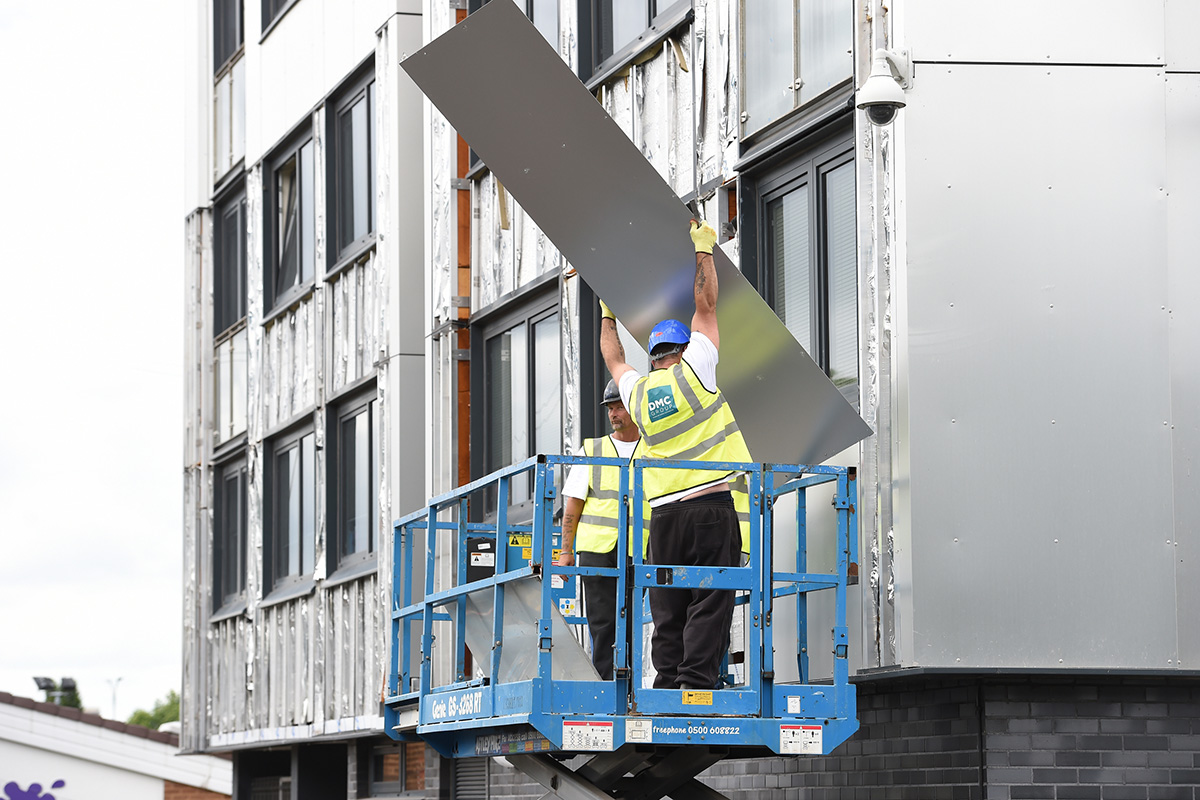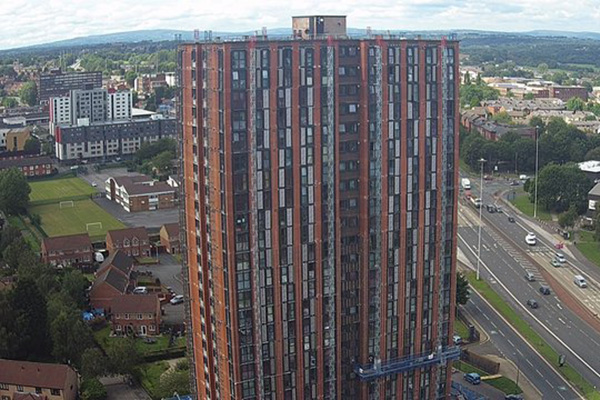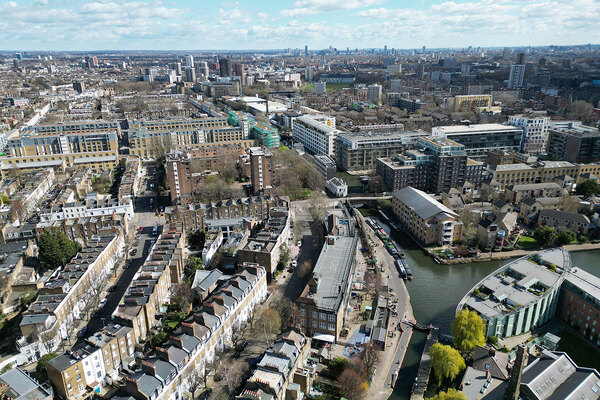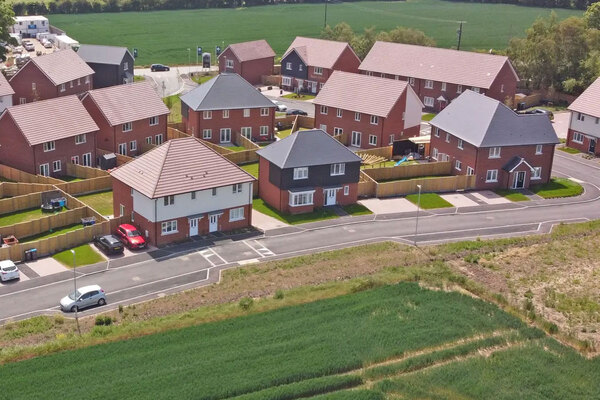Together’s Salford PFI profits wiped out by £28m bailout
Together Housing Group (THG) has effectively used the profits it would have earned from a private finance initiative (PFI) in Salford to bail out the scheme, bringing a three-year saga of how to fund the replacement of dangerous cladding to a close.
The 36,000-home, Yorkshire-based provider has made a £28m loan facility available to its subsidiary, Pendleton Together Operating Ltd (PTOL), so the company can complete remedial works across nine towers and pay for interim safety measures and legal and consultancy costs.
Three floors of cladding were removed from all nine towers swiftly after the Grenfell fire in June 2017, before the aluminium composite material cladding was deemed unsafe by the Ministry of Housing, Communities and Local Government (MHCLG). However, a three-year hiatus followed as the council, PTOL and Together tried to secure funding for the rest of the works, paying for 24-hour waking watches in the meantime. Works are now under way, but are set to take more than two years.
According to Tom Miskell, chair of PTOL and former chief executive of Together when the PFI was set up in 2013, the association could have written off its £12m equity investment and walked away from the scheme, which would have left PTOL insolvent. He said Together chose to stand by it in the interests of residents. Investors Pension Insurance Corporation (PIC) and Gravis also would have lost out.
Mr Miskell said: “Contractors have continued to work safely during the recent restrictions and they are on schedule to have all the cladding removed before the end of the year. We’re aware that this has been a troubling time for residents and we’re pleased that the important work can progress.”
Mark Dunford, executive group director of corporate services at Together, said: “The primary concern of the Together board has always been the welfare of residents and we have made a significant investment to facilitate these works.” He added: “[We are] grateful for the patience the residents have shown and the partnership working with Salford City Council.”
The loan from Together was perceived to be a last resort for funding after government refused to allow Salford Council to provide the funding due to PFI rules. It was also denied access to the government’s £400m cladding safety fund, with MHCLG saying it was not appropriate under PFI rules to use public sector money. For Together, the £28m is equivalent to the 12 per cent ‘coupon’ it would receive six-monthly over the term of the 30-year PFI, according to Mr Miskell.
Salford Council – which owns the nine blocks under the PFI – has continued to pay its unitary charge of £14.8m per year and has agreed to commit £4m for sprinklers.
Mr Miskell added that PFI “does not lend itself to a situation like this”, but that a “collegial approach” with the council and investors had ensured they could work through the contractual challenges.
PFI key financials
£12.5m
Equity from THG
£82.6m
Bonds; £71.7m of Class A senior secured notes at 5.414 per cent with PIC; and
£10.9m
Class B junior secured notes at 8.35 per cent with Gravis
Source: Social Housing, October 2013
An £8m fund was created in August 2017 between PTOL and the council to allow payment of some immediate cladding costs, following advice from the fire services around safety risks. The action resulted in waivers from the original PFI contract from its investors.
Alongside back and forth with government on funding, there was discussion between advisory firms and consultancies hired by investors and PTOL on the best way forward.
By autumn 2018, John Merry, Salford’s deputy mayor, said funding had been secured. Around that time, Together was completing its refinancing, freeing up capacity and enabling on-lending by repaying a £172m facility to Dexia at breakage costs of £19.5m. Its 2019 accounts reported that the waking watch of the high rises was costing £2.7m until the works are completed.
PTOL booked accounting losses of £25m in 2018 and £22m in 2019, of which £22m and £17m related to cladding and safety costs, and representing the reduction in the value of the fixed assets.
Pendleton was also one of the final four housing PFIs financed by bond debt, after HM Treasury decided that bank finance did not offer value for money for certain schemes. They were also the last schemes to receive government PFI credits, before Whitehall investment in PFI was scrapped.
Mr Miskell said PTOL has continued to meet all financial commitments to bondholders.
The council’s cabinet papers in May 2020 said – subject to Homes England and MHCLG “not objecting” – that it would enter into agreements and restatements with PTOL relating to safety works.
It also agreed a waiver of pending key performance indicator deductions and rent loss incurred during 2017/18 and 2018/19 due to the impact of the fire safety works.
RELATED






